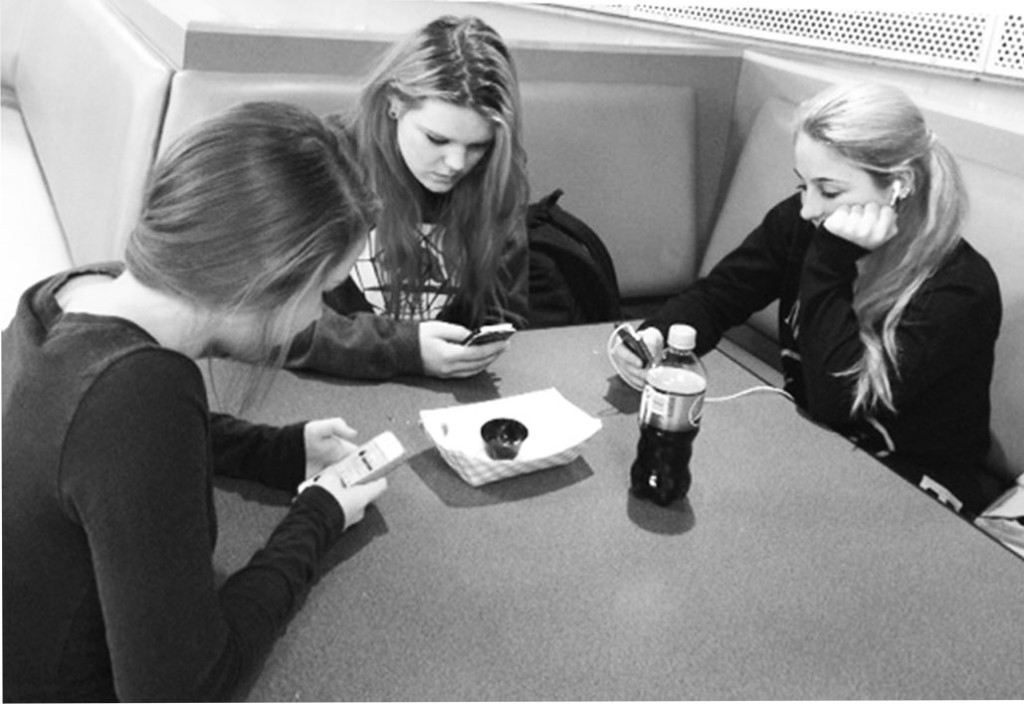
Despite the surrounding roar of chatty students, freshman Julia Rothschild found herself at a lunch table full of silent peers.
“My friends usually use phones at lunch,” said Rothschild. “It can be a bother because it can be silent sometimes and we all just stare at our phones. Everyone is just so involved in what’s going on in social media instead of conversations because of technology.”
However, Rothschild is not the only student who uses or has observed other people using technology during meals.
Senior Kevin Lee admits that he and his peers use technology frequently during meals as well. Once at dinner with his friends, they decided to play the “stacking game,” because people would not put down their phones.
“The stacking game is where everyone puts their phones in the center of the table and the first person to use their phone has to pay for dinner,” said Lee. “Well, [my friends and I] played the game that night during our sushi dinner. My one friend used his phone halfway through the meal and ended up having to pay over a hundred dollars for all our meals.”
Beth Stencel, nutrition educator at the Connecting With Wellness Center, believes that using technology while eating can have negative physical effects on people.
“When technology is at the table, there is less conversation and constant interruptions,” said Stencel. “People do not pay attention to the food they are eating, the people they are with and do not recognize when they are full.”
But technology does not only affect people physically. According to Todd Kestin, licensed clinical social worker, technology can cause us to lose focus not just at meal times, but whenever we use it.
Kestin, who has helped many of his patients overcome technological dependency, finds that dependency on technology is often derived from people’s inherent need to instantly have access to information and conversation.
“[People] have the need for instant gratification and so when our phone buzzes and beeps, we want to pick it up and see why,” said Kestin. “That shortens our attention span, makes us out of tune with what’s happening around us.”
Kestin also believes that technology has changed the way we interact with people.
“Statistically, texting decreases interpersonal skills,” said Kestin. “Just like communication you might have with your friend. …With texting you can misinterpret someone’s word, because you’re not actually communicating.”
Rothschild thinks that while people are with their friends, they should restrict their use of technology.
“You get to have conversations and talk instead of just ignoring each other and being on phones,” Rothschild said.
Kestin, like Rothschild, believes people need to divorce themselves from their technology and have conversations. By communicating via social media or text, people can hide. Kestin said having conversations in person builds resilience.
“It’s bad to use technology as your coping skills as opposed to going outside or meeting with a friend, because you need to put your attention outside of yourself,” said Kestin. “There’s probably an addiction piece to that. …It can lead to more depression-like symptoms. You isolate yourself more. Especially if you feel a helplessness, it blocks you from forming interconnections.”

